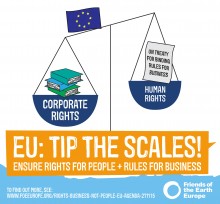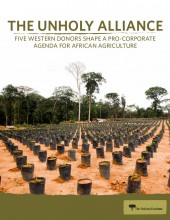The online awards organised by Corporate Europe Observatory, Friends of the Earth Europe, LobbyControl and WeMove.EU focuses on big industry lobbies influencing the ongoing TTIP negotiations. For the fourth year, the EU-US trade negotiations are continuing behind closed doors, despite the far-reaching consequences which a deal will have on consumer protection, health and environmental standards, as well as democratic decision making in Europe.
Even though citizens have every right and reason to be concerned about this prospect, negotiation texts remain [...]






